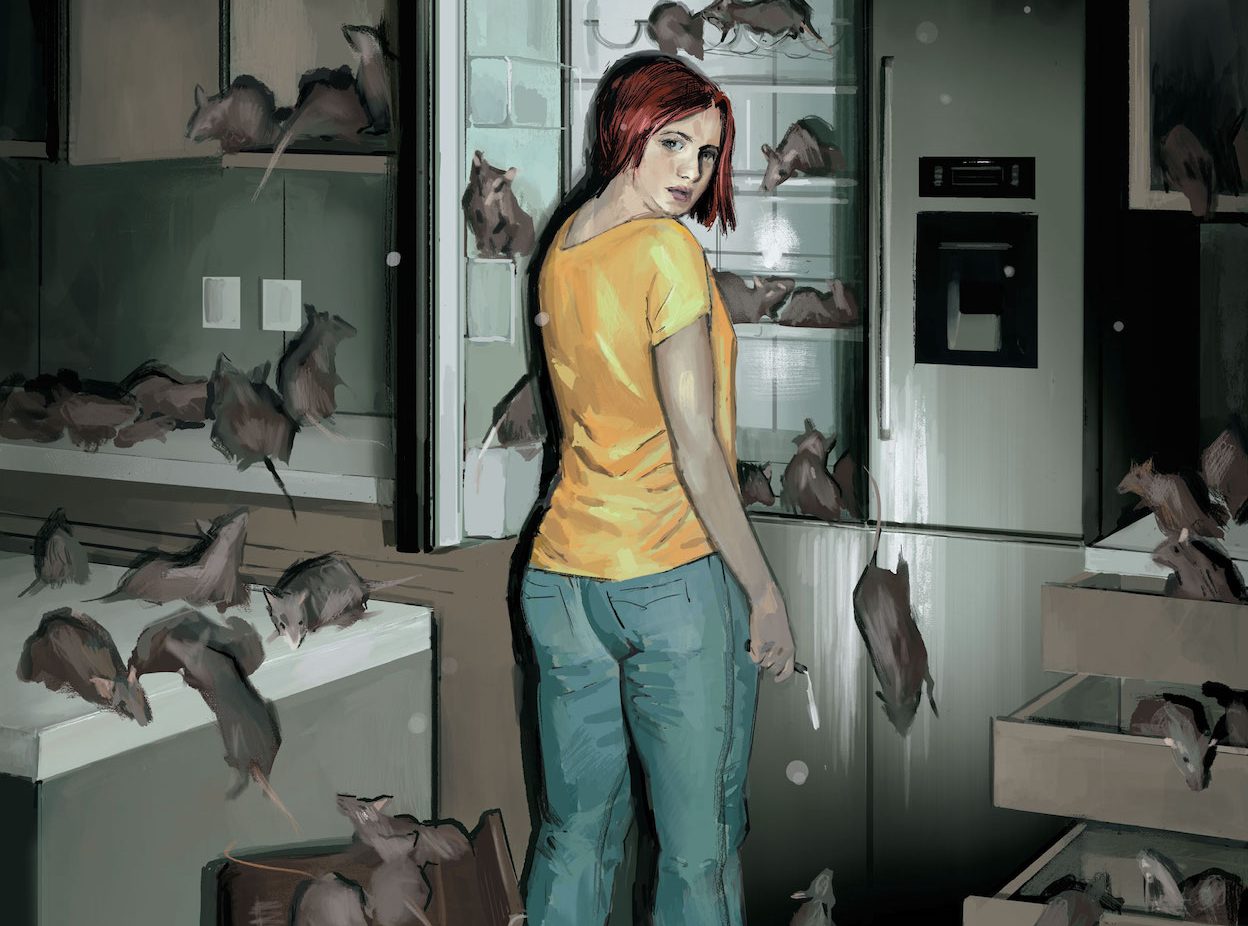One wonder of The Nice House on the Lake is how sweetly and accurately it captures certain parts of life. The creators create short-hand moments of intimacy that feel earnest, emblematic of the tight relationships formed between large groups of people (and the quiet moments that happen within them).
Not only does the book pull the reader into loving the human characters, it also manages to deliver up a slice of the incredibly loveable “person” who is undeniably the book’s forward-facing villain, Walter. Flashbacks throughout the preceding six issues as well as in this return issue have shown him to be a deeply sweet, caring individual. Though he might be an integral part of the horrendous end of Earth, we can see him struggling with that. He simply loves.
Even though he has manipulated the gang into forgetting his role in the end of the world, he still seeks to provide for them—to lead them, if not through their escape, then to a more comfortable and enriched post-apocalypse.
The horror of Walter—his truly evil cruelties—becomes undeniable and personal in this issue, however. For reasons not quite established, Walter has readjusted the dynamic, inserting previously isolated Reggie (whose presence we were not even aware of until recently) and shunting Norah into a dead space, a sort of liminal prison. None of her friends even remember she had ever been in the Nice House.
Norah, with the memory of Walter’s monstrous truth still intact, suffers in a black void and begins to ponder an alarming possibility: Walter has changed his mind about letting her survive. Fully transitioned, has Walter tossed her aside for no longer being the boy he knew in high school? The terrible possibility of falling out of favor with someone you love due to such momentous, necessary changes is a very honest fear, one part of the cacophony of interfering noise that faces trans individuals. It’s a terror which hammers home the humanity of terror in the series.

That earnest fear—whether it is an accurate one—becomes the touchstone of humanity in this issue. For every sweet moment of nostalgia that has kept the series from sliding too quickly and irreparably into the void of existential terror, Norah’s structured, meticulous imprisonment is the darkness that topples the scale. Whatever behind-the-scenes reasons Walter might have for her new place apart from the others cannot explain away the soul-deep fear—and justified rage—of being abandoned for becoming oneself.
Though the book has always carried with it a dread—we, the reader, have always known the apocalyptic stakes—until now, it hasn’t provided a singular, undeniable personal terror. Until now, the horror was veiled, abstracted from our characters’ lives. Here, it has arrested a life, cast it into question—removed it from the others, physically and emotionally.
It’s a smart move for the beginning of the second arc to anchor the reader with this emotional instability, especially after the short hiatus might have ever-so-slightly dulled our recollection of the book’s core tone and concerns. It also starts us right back with an understanding of Walter’s inherent inhumanity.
Join the AIPT Patreon
Want to take our relationship to the next level? Become a patron today to gain access to exclusive perks, such as:
- ❌ Remove all ads on the website
- 💬 Join our Discord community, where we chat about the latest news and releases from everything we cover on AIPT
- 📗 Access to our monthly book club
- 📦 Get a physical trade paperback shipped to you every month
- 💥 And more!














You must be logged in to post a comment.